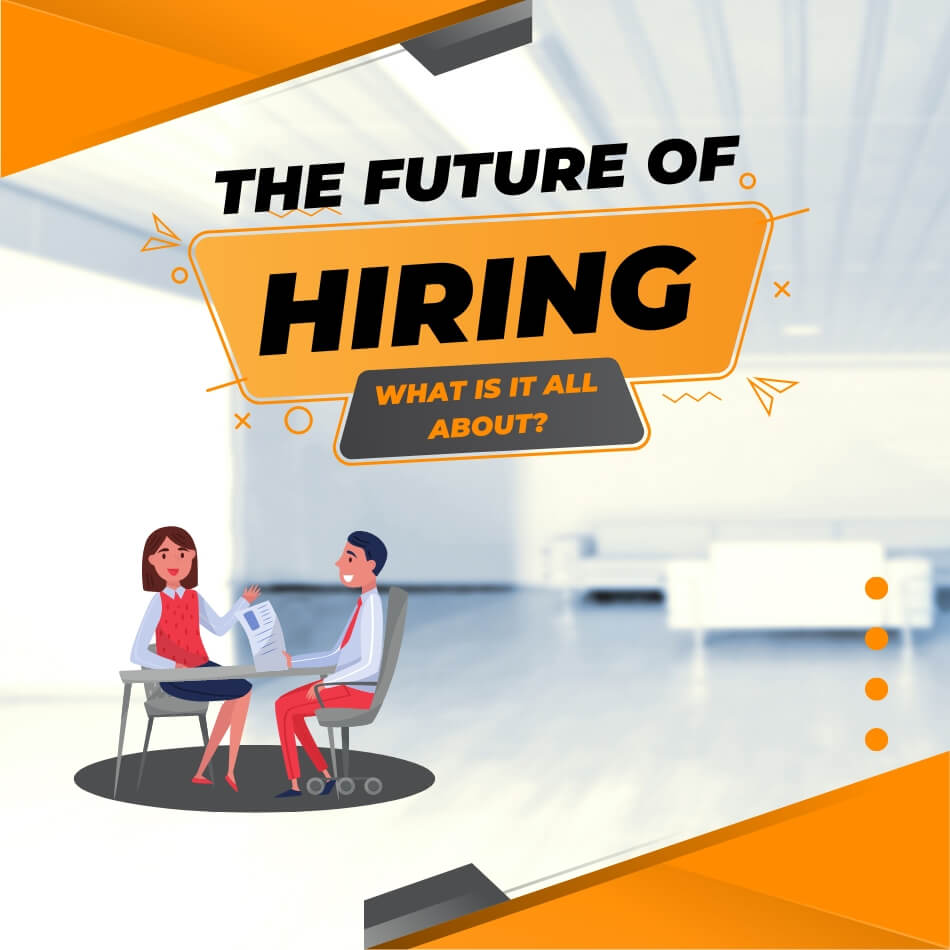Table of Contents
ToggleAlong with other technological and industrial fields transforming rapidly, the employment market is just as vibrant. The workforce has just recovered from a massive shift in work arrangements caused by the pandemic. This shift brought its corrections to the culture, principles, and approaches to hiring. This tendency will continue as employers and hiring managers try to reevaluate emerging methods.

Based on what happens in the job market now, we can already figure out the trends that are here to stay. Moreover, their emergence is natural regarding other factors, such as technological development, market expansion, and social progress. So, before you write your two-week notice letter looking for the workplace of the future, let’s see what the labor market has today.
But First: Where Are We Now?
Dynamic as it is, here is where the industry stands.
- Job seekers and candidates can choose more freely between offers due to the diversified market and multiple opportunities.
• Social and seemingly non-material benefits still have huge power among employees. People value emotionally-related experiences more than money at times.
Human resources rely on automation a lot, and this tendency is here to stay.
• The demographic parameters of candidates matter less and less. Hence, workplaces will keep on with diversification.
• Remote, hybrid, and freelance arrangements have opened more possibilities for inclusion, so the tendency to hire low-mobility people will continue.
With that in mind, we can logically envision where these tendencies go. So, here are the main points on the future of hiring people.
What to Expect from the Future of Hiring?
Today, human resources are a separate field of education and training. Their professionalism will continue to expand and get to the more subtle area. Here is where the change will be visible.
We suggest reading Leaders Need Executive Coaching.
Diversified Workforce
As mentioned before, physical and demographic parameters such as abilities, age, ethnicity, and gender will matter less and less in employment. Naturally, it will be relevant for positions that have nothing to do with one’s abilities. This tendency will reflect in the culture of hiring and applying for jobs: HRs do not inquire about the above-mentioned things on the resume, and the applicants choose for themselves whether to mention that at all.
In terms of the impact of diversity on the workplace and efficiency, employers will only win from this. Such a workplace gathers individuals with different backgrounds and visions, contributing to sharing expertise and creating conditions for more streamlined growth.
Sleek Processes
A lot of processes that do not require human participation will go automated. Nowadays, technology allows doing that, giving hiring professionals more time and space to screen the candidates personally. In addition, automation of document management allows for more transparency in choices and hence more fair hiring. Therefore, combining an empathetic human approach and automated side processes and procedures will improve the quality of the workforce and simplify this process for candidates and recruiters.
Increased Value of Personal Recommendations.
Fair competition among enthusiastic newbies is not going anywhere. However, companies nowadays encourage hiring via recommendations. It has to do with the aspiration of improving the HR image of the company and spending fewer resources on onboarding. Usually, if the company is satisfied with the employee, it would wish for more people like the latter to work for them.
Companies will continue providing referral bonuses and developing new ways to stimulate headcount growth based on recommendations.
More Power to the Candidates
As we mentioned, candidates nowadays have more space to choose their perfect digital workplace. Hence, the future of hiring will look more and more like a competition between employers. However, the strategies employers will take will still be based on benefits beyond the salary. These are bonuses, education programs, corporate events, and customized incentives.
On top of that, employees and applicants nowadays are aware of the competition. Therefore, it signifies a shift in the power balance between the employee and employers.

Helpful Bots
Companies will continue using and improving applicant tracking systems and ATS bots. Again, they are designed to simplify the recruiter’s work on the tasks with too many candidates to handle manually. ATS software usually scans the application for matching or targeted keywords.
As for recruiters, such technology means simplified hiring. For applicants, it means a more thoughtful approach to resume writing. A resume is more of a creative assignment for every applicant, but it inclines toward standardization and formalization. It will, in turn, stimulate the resume writing market development.
Hiring and Working Globally
Another noticeable consequence of a long lockdown and remote work is lifting the borders of hiring people. Since employees often are not required to go to the office daily, it does not matter where they reside. Hence, more professionals from different countries can look for opportunities beyond their city, country, or even continent. This shift gives employers a massive benefit.
You can also read How can Hire the best digital marketing expert.
Emphasis on Education
In the future, companies will keep the tendency to hire strategically. It means that the staff traffic will go down, as the employers will invest more in each of the laborers ensuring they grow professionally and contribute more to the organization.
This tendency will cause growth in the education market as well. As a result, employees will have more options in learning new skills, and employers will be more careful about possible lay-offs considering the investments already made for the employee’s development.
Quitting Rules
As we just mentioned, employees and applicants will have more options. Hence, it means that hiring managers will have to put more effort into attracting new staff and keeping the employees motivated. But on the other hand, employees will have more freedom to quit and easier ways to find new opportunities. Nonetheless, leaving process will be formalized and require a two-week notice to leave the job.
Final Thoughts
As you can see, the development of the trends for the future is just the continuation of the ones we can observe nowadays. Generally speaking, hiring will incline toward unique problem-solving and creative competencies while delegating more repetitive processes to automation.
To stay relevant in the future job market, work on problem-solving and soft skills. If you ever need to package your talents into an impressive resume, get professional writing help.






